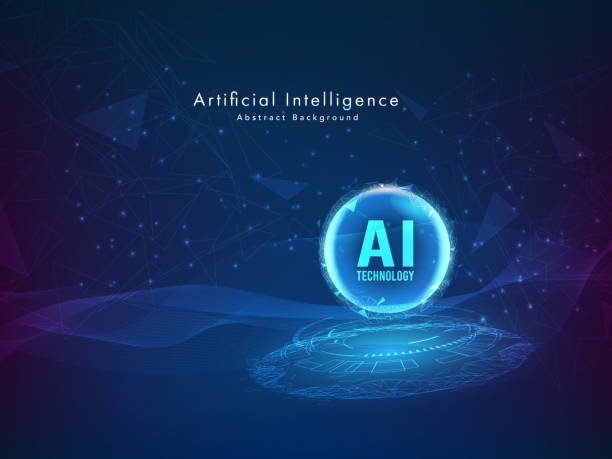Introduction to SEO Optimization and Its Importance

In today’s digital world, an online presence is vital for every business and individual.
But simply having a website is not enough; you must ensure your site is seen by your target audience.
This is where #Search_Engine_Optimization or #SEO plays a pivotal role.
SEO is a process that helps your website achieve a higher ranking in the organic search results of engines like Google, Bing, and Yahoo.
In fact, it’s an educational and continuous approach that requires a deep understanding of how search engine algorithms work and user behavior.
Without strong SEO, even the best content or product may never reach its audience.
This specialized knowledge is key to success in digital marketing.
The importance of SEO is not limited to visibility; it helps attract quality traffic, increase brand credibility, and ultimately grow your business.
When a user searches for a phrase on Google, they expect to find the best and most relevant answer.
Search engines do exactly this; they strive to display the most relevant and authoritative sources at the top ranks.
By adhering to SEO principles, you show search engines that your website is a valuable and reliable resource.
This process includes technical site optimization, producing engaging and valuable content, and acquiring backlinks from reputable sites.
Understanding these fundamental aspects is the starting point for any successful SEO journey and will help you consistently shine in search results.
Frustrated with your online store’s low conversion rate?
RasaWeb, with its professional e-commerce website design, is your definitive solution!
✅ Increase your sales and revenue
✅ Unmatched user experience for your customers
⚡ Get a free consultation now!
Types of SEO: Technical SEO, On-Page SEO, and Off-Page SEO

Optimizing a website for search engines is a multifaceted process generally divided into three main categories: #Technical_SEO, #On-Page_SEO, and #Off-Page_SEO.
Understanding the differences and interconnections of these three areas is essential for implementing a comprehensive SEO strategy.
Technical SEO pertains to the technical aspects of your website that affect its crawlability and indexability by search engine bots.
This includes elements such as site loading speed, responsiveness (mobile compatibility), URL structure, Robots.txt file, sitemap, and fixing 404 errors.
A website with a strong technical infrastructure provides a solid foundation for subsequent SEO successes.
This section is more explanatory and foundational.
On-Page SEO refers to optimizing internal elements of a web page to improve its ranking in search results.
This includes proper use of keywords in the page title, meta descriptions, headings (H1, H2, H3), text content, image optimization (alt text), and internal linking.
The main goal of On-Page SEO is to create content that is valuable and understandable for both users and search engines.
This section provides practical guidance for producing effective content.
Finally, Off-Page SEO encompasses all activities performed outside your website that influence its ranking.
The most crucial aspect of Off-Page SEO is link building; that is, acquiring backlinks from other websites.
The more authoritative and relevant the links pointing to your site, the more your site’s credibility will increase in the eyes of search engines.
Activities such as social media marketing and participation in online forums can also indirectly impact Off-Page SEO.
Keyword Research: The Backbone of SEO
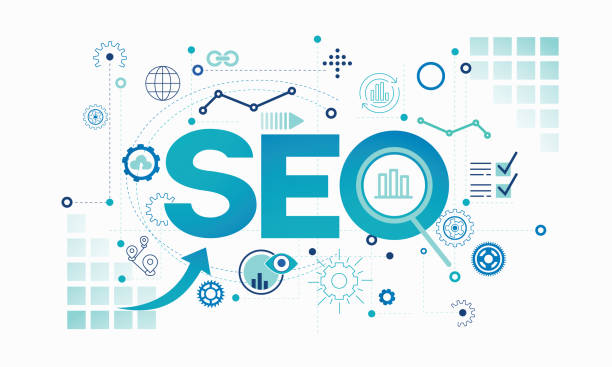
#Keyword_research is the cornerstone of any successful #SEO strategy.
This process involves identifying the phrases and words your target audience uses in search engines to find products, services, or information related to your business.
Without a proper understanding of the keywords used by users, all your SEO efforts may be fruitless.
The goal of keyword research is not just to find high-volume keywords, but to find words that accurately reflect user search intent and lead to attracting relevant, high-quality traffic to your site.
This is an analytical and strategic process that requires great precision.
To conduct effective keyword research, you must pay attention to search volume, competition level, and the relevance of keywords to your content.
Various tools such as Google Keyword Planner, Ahrefs, Semrush, and KWFinder can assist you in this area.
In addition to short, highly competitive keywords (Short-tail Keywords), you should also look for Long-tail Keywords, which, although having lower search volume, have a more specific search intent and usually higher conversion rates.
For example, instead of “SEO”, use “SEO training for beginners in Tehran”.
These keywords provide more ranking opportunities.
Proper understanding of this concept is a foundational educational base for any SEO specialist.
Below is a guide table for keyword selection:
| Type of Keyword | Characteristics | Example |
|---|---|---|
| Short-tail | High search volume, high competition, general intent | “SEO” |
| Mid-tail | Medium search volume, medium competition, somewhat more specific intent | “SEO training” |
| Long-tail | Low search volume, low competition, very specific intent | “Best SEO training for small businesses” |
Producing Quality Content: Content is King
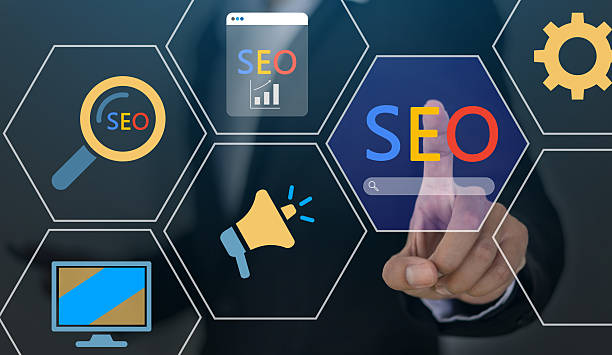
After keyword research, it’s time to produce #quality_content, also known as #Content_is_King.
Content is the heart of any #SEO strategy, and without it, no SEO campaign will succeed.
Search engines aim to provide the best and most relevant answers to user queries, and these answers are presented in the form of text, image, video, and audio content.
Quality content means content that not only incorporates target #keywords but also fully addresses user needs and provides real value to them.
This content can be explanatory, guiding, news-related, or even entertaining, but it must always be accurate, comprehensive, and unique.
To produce quality content, you must first thoroughly understand user search intent.
Are they looking for information? Do they intend to make a purchase? Or are they seeking to solve a specific problem? Your content must address these needs.
Long and comprehensive content that covers all aspects of a topic usually performs better in SEO rankings, as it signals to search engines that you are a reliable authority in that field.
Furthermore, using appropriate formatting (such as headings, short paragraphs, lists, and images) improves content readability and enhances user experience.
An engaging article or blog post can significantly boost user engagement and send positive signals to search engines.
Remember that your content should be regularly updated to maintain its freshness and relevance; this is an important SEO principle.
Tired of missing out on business opportunities due to lacking a professional corporate website? Worry no more! With RasaWeb’s corporate website design services:
✅ Your brand’s credibility and professionalism will increase.
✅ You’ll attract more customers and sales leads.
⚡ Get a free consultation now to start!
On-Page SEO: Internal Site Optimization
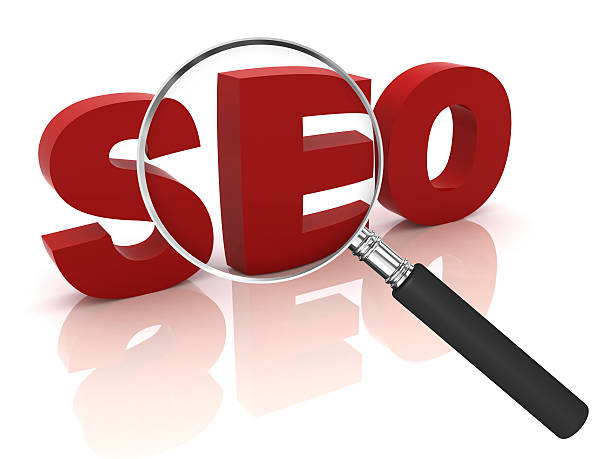
Internal site optimization, or #On-Page_SEO, refers to the set of activities performed within your website’s pages to improve their ranking in search engines.
This involves optimizing various elements that both users and search engine crawlers see and read.
One of the most important elements is the #Title_Tag, which displays your page’s title in search results and browser tabs.
The title should include the page’s main keyword and be engaging and informative.
Following that is the #Meta_Description, which provides a brief summary of the page’s content and, although it doesn’t directly influence rankings, can significantly increase click-through rate (CTR).
This part of SEO requires a specialized understanding of how search engines interact with HTML code.
In addition to the title and meta description, correct use of headings (H1, H2, H3, etc.) is crucial for structuring content.
H1 should include the main keyword and be used only once per page, while H2 and H3 are used to divide content into logical subsections and can include secondary keywords.
#Image_optimization is also a vital component; it includes compressing images to improve loading speed and using appropriate Alt Text that incorporates relevant keywords and describes the image content.
Internal linking, which means creating links from one page on your site to another page on the same site, is also very important for distributing link equity throughout the site and helping crawlers find and index all pages.
The URL structure should also be clean, short, and include relevant keywords.
All these activities together help search engines better understand your content and, consequently, assign a better ranking to it.
Off-Page SEO and Link Building: External Site Optimization

Off-Page SEO refers to all activities performed outside your website that influence its ranking in search engines.
The core of Off-Page SEO is #Link_Building.
Backlinks, or links pointing from other websites to your site, are considered a vote of confidence from those sites to your content.
The more authoritative and relevant the linking sites are, the greater the SEO value of those links for your site.
In fact, the quality of links is far more important than their quantity.
For example, one link from a reputable and large news site is far more effective for your SEO than dozens of links from low-value and irrelevant sites.
This aspect of SEO is more news-oriented and based on public relations.
Link-building strategies include creating high-quality content that naturally attracts links, participating in forums and blogs, publishing guest posts on relevant sites, building relationships with influencers, and requesting links from sites that have naturally used your content as a reference.
In addition to link building, social media activity, although not directly impacting SEO rankings, can help increase your content’s visibility, attract traffic, and ultimately acquire natural links.
Brand Mentions, meaning mentions of your brand or website name on the internet, even without a direct link, can also act as positive signals for search engines.
All these activities contribute to building your domain’s authority and strength, ultimately improving your SEO ranking.
Understanding these explanatory principles is crucial for any successful SEO campaign.
Local SEO and Mobile SEO: Modern Approaches in SEO

In today’s world, with increasing mobile usage and local searches, #Local_SEO and #Mobile_SEO have become two vital aspects of search engine optimization strategies.
#Local_SEO helps improve your business’s visibility in local search results, especially for users located near your physical location.
This is incredibly important for service businesses, restaurants, stores, and any business with a physical address.
Registering with Google My Business and optimizing its profile with accurate information, quality images, and positive user reviews are among the most important steps in Local SEO.
This part of SEO provides practical guidance for attracting local customers.
Mobile SEO also refers to optimizing your website for a better user experience on mobile devices.
Given that a significant portion of internet traffic occurs via mobile, mobile-friendliness of a website is a very important ranking factor for Google.
Your site should have a responsive design that automatically adjusts to the user’s screen size, have fast loading speed, and be easy to navigate on mobile.
Since Google uses a Mobile-First Indexing approach, meaning it primarily considers the mobile version of your website for crawling and indexing, lack of mobile optimization can severely harm your SEO ranking.
A deep analysis of site performance on mobile can reveal weaknesses.
Below is a table comparing Local SEO and Mobile SEO:
| Feature | Local SEO | Mobile SEO |
|---|---|---|
| Main Goal | Attracting local customers through location-based searches | Optimizing user experience and site performance on mobile devices |
| Key Tools | Google My Business, NAP (Name, Address, Phone) Consistency | Responsive design, AMP, Mobile loading speed |
| Impact on Ranking | Directly on local search results and Google Maps | An important factor for Google’s Mobile-First Indexing |
SEO and User Experience (UI/UX): Close Connection
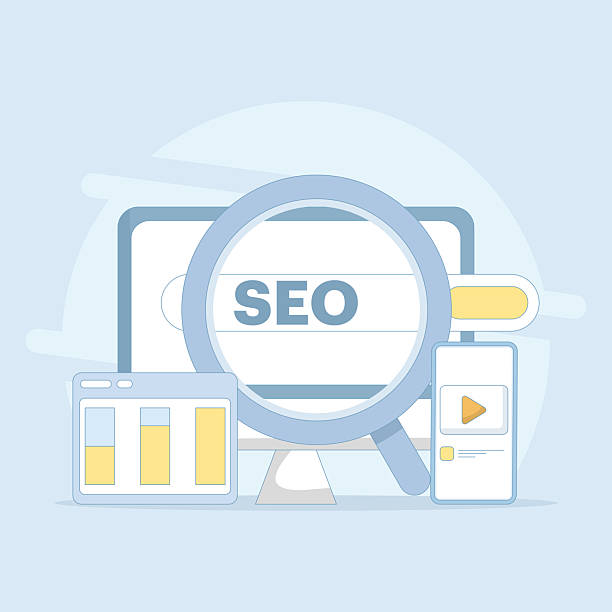
In recent years, the connection between #SEO and #User_Experience (UX) has become much more prominent.
Google and other search engines are increasingly focusing on factors related to user experience, such as site speed, mobile compatibility, and bounce rate, as ranking signals.
A website with poor UX, even if technically and content-wise optimized for SEO, cannot maintain high rankings in the long run.
When users enjoy your website, they spend more time on it, view more pages, and are less likely to leave the site.
These positive signals indicate to search engines that your content is valuable, and as a result, your SEO ranking improves.
This is an analytical and synergistic relationship.
Key UX elements that impact SEO include: Page Speed, which is crucial for both users and search engine crawlers; responsive design, which ensures your website displays well on any device; easy navigation and logical site structure, which help users find the information they need easily and allow crawlers to efficiently crawl your site; and high-quality, readable content that keeps users engaged and entertained.
An engaging content piece that prompts user interaction can also help improve UX.
Improving user experience leads to a reduced bounce rate, increased time spent on site, and higher conversion rates, all of which are strong signals for search engines.
Consequently, investing in UX improvement is essential not only for user satisfaction but also for SEO success.
Did you know your company’s website is the first point of contact for 75% of potential customers?
Your website is the face of your brand. With **RasaWeb**’s corporate website design services, build an online presence that earns customer trust.
✅ Create a professional and lasting image for your brand
✅ Attract target customers and boost online credibility
⚡ Get a free consultation from **RasaWeb** experts now!
SEO Tools and Performance Analysis

For every #SEO specialist, using #SEO_tools for website #performance_analysis and discovering opportunities and challenges is essential.
These tools provide valuable insights into keywords, backlinks, site technical health, and competitor performance.
Without these tools, SEO optimization would be a speculative and inefficient task.
One of the foundational and free tools is Google Search Console, which provides direct information from Google about your site’s performance in search results, crawl errors, and security issues.
Google Analytics is also a powerful tool for tracking site traffic, user behavior, and conversion rates.
These tools are educational for a deeper understanding of your users and website performance.
In addition to Google’s tools, there are other specialized tools like Ahrefs and Semrush that offer extensive capabilities in keyword research, backlink analysis, competitor analysis, and ranking monitoring.
These tools help you identify new opportunities, analyze competitors’ SEO strategies, and track your progress over time.
For example, you can use Ahrefs to find websites that have linked to your competitors and then try to acquire links from them.
Also, site speed checking tools like Google PageSpeed Insights and GTmetrix are essential for optimizing site loading speed.
By correctly using these tools, you can make data-driven decisions and significantly increase the effectiveness of your #SEO campaigns.
Choosing the right tools and mastering them is a crucial part of any specialized approach to SEO.
The Future of SEO and Upcoming Trends

The world of #SEO is constantly changing and evolving, and keeping pace with #new_trends is essential to maintaining and improving your website’s ranking.
One of the most important future trends is the increasing focus on #Artificial_Intelligence (AI) and machine learning in search engine algorithms.
Google’s algorithms like RankBrain and BERT are already capable of better understanding search intent and natural language semantics, which emphasizes the importance of producing comprehensive and topically relevant content (Topical Authority).
These developments double the need for an analytical and proactive approach to SEO.
Other trends include the increasing importance of #Voice_Search, optimization for #SERP_Features such as Featured Snippets and Knowledge Panels, and an increased focus on Core Web Vitals as ranking factors.
With the rise of voice assistants, optimizing for voice searches, which are typically longer and query-based, becomes more important.
Additionally, appearing in Featured Snippets can drive significant traffic to your site, even if you don’t hold the top rank.
Google also emphasizes Page Experience metrics, including Core Web Vitals (such as LCP, FID, CLS), which signifies greater importance for loading speed, interactivity, and visual stability of pages.
Staying informed and updating SEO knowledge and strategies is crucial for future success.
These new trends remind us that SEO is never a one-time task, but rather a continuous and engaging process.
Frequently Asked Questions
| Question | Answer |
|---|---|
| What is SEO? | SEO, or Search Engine Optimization, is the process of increasing the quality and quantity of website traffic by improving site ranking in organic search results of search engines like Google. |
| What are the main types of SEO? | SEO is divided into three main categories: On-Page SEO, Off-Page SEO, and Technical SEO. |
| What does On-Page SEO include? | On-Page SEO includes optimizing elements within the website, such as keywords, Title Tag, Meta Description, content, URL structure, images, and internal links. |
| What is Off-Page SEO? | Off-Page SEO refers to activities outside the website that help improve its ranking, such as Backlink Building, social media marketing, and Brand Mentions. |
| What is Technical SEO? | Technical SEO deals with optimizing the technical aspects of a website to help it be better crawled and indexed by search engines. This includes site speed, mobile-friendliness, site structure, sitemaps, and the Robots.txt file. |
| What role do Keywords play in SEO? | Keywords are phrases that users enter into search engines. Proper and targeted use of relevant keywords in content and site elements helps search engines understand your page’s topic and display it for relevant searches. |
| What is a Backlink and why is it important? | A backlink or inbound link, is a link from one website to another website. Backlinks act as a “vote of confidence” from other sites for your content and play an important role in the credibility and ranking improvement of a site, especially if they are from authoritative sites. |
| What is the impact of quality content on SEO? | High-quality, relevant, comprehensive, and unique content not only attracts and retains users but also shows search engines that your page is valuable. This helps improve ranking, reduce bounce rate, and increase user time spent on the site. |
| Why is site loading speed important for SEO? | Site loading speed is an important ranking factor for Google. Faster sites provide a better user experience, have lower bounce rates, and are preferred by search engines. |
| Is SEO a one-time process? | No, SEO is a continuous and long-term process. Search engine algorithms are constantly changing, competition is increasing, and site content also needs updating. Therefore, SEO requires continuous monitoring, analysis, and optimization. |
And other services of RasaWeb Advertising Agency in the field of advertising
Smart Advertorial: An innovative service for increasing sales through custom programming.
Smart Direct Marketing: Designed for businesses seeking to increase sales through the use of real data.
Smart Advertising Campaign: An innovative service for increasing website traffic through Google Ads management.
Smart Digital Advertising: A professional solution for improving SEO ranking with a focus on Google Ads management.
Smart Website Development: A creative platform for improving user interaction with marketing automation.
And over hundreds of other services in the field of internet advertising, advertising consultation, and organizational solutions
Internet Advertising | Advertising Strategy | Advertorial
Resources
Comprehensive SEO Guide on Virgool, What is SEO? MihanWebHost, On-Page SEO Training RayanHost, SEO Strategy on SEO Roz
? Are you looking to boost your business in the digital world? Rasaweb Afarin Digital Marketing Agency offers comprehensive and innovative solutions, including multilingual website design, to accompany you on your path to growth and success.
📍 Tehran, Mirdamad Street, next to Bank Markazi, Southern Kazeroon Alley, Ramin Alley, No. 6




